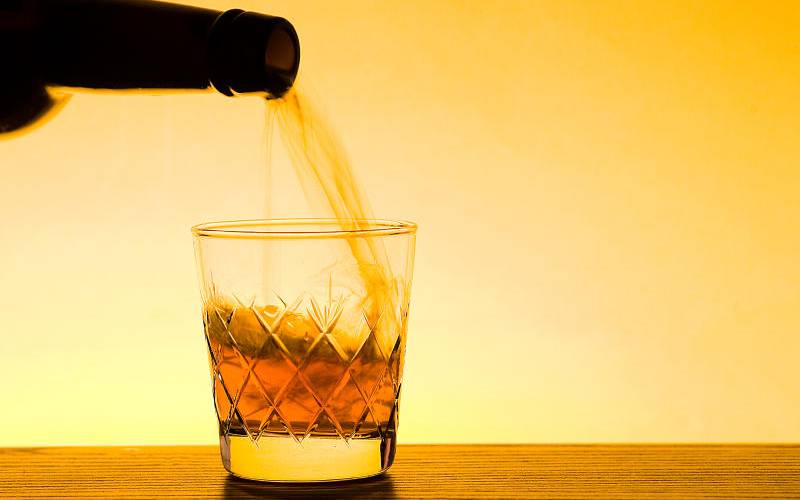The outbreak of Covid-19 pandemic triggered a frantic crusade for Kenyans to stay at home to avoid contracting the deadly disease. But tipplers, who rued the closure of bars and night clubs, would not go home without a sip of their favourite drink.
When Kenyans became broke and were denied even the power of touch by the pandemic that pushed them into their own cocoons, hard liquor became their beloved company. It kept them sane.
They religiously drank rivers upon rivers of whiskey, vodka, gin and rum – like an ocean. It was a boon for the taxman. Data from the Economic Survey 2021 shows that while tax revenues from most excisable products plummeted, that of spirits rose by 15 per cent in the period ending June 2020. READ MORE
The Kenya Revenue Authority (KRA) collected an increased Sh15.7 billion from wines and spirits in the financial year 2019-2020 compared to Sh13.6 billion in the previous fiscal year. This even as excise duty from beers reduced by more than a third from Sh27.8 billion to Sh19.1 billion.
“The decrease in excise revenue from beer could be attributed to the closure of bars and other entertainment joints owing to the Covid-19 restrictions while that of financial transactions was as a result of waivers in some transactional costs,” read part of the Economic Survey, which showed that close to 738,000 jobs were lost last year, even as the size of the economy contracted by 0.3 per cent.
To discourage people from touching money and spreading Covid-19, the Central Bank of Kenya (CBK) waived fees on the transfer of sums below Sh1,000 on mobile phones.
Generally, total excise revenue collected from locally manufactured commodities and services amounted to Sh102.7 billion in 2020, a decline of 12.1 per cent from Sh116.9 billion collected in 2019.
However, consumption of beer has not grown as fast as that of spirits.
Low uptake of beer
Even before the pandemic struck, the flow of premium beer – normally packaged in slim green bottles – from countries such as the Netherlands (famous for Heineken) and Denmark (the home of Carlsberg) had alarmingly been reducing to a trickle.
Not that Kenyans had suddenly become teetotalers. If anything, they were drinking even more “hard stuff.”Even as the shipment of beer into the country declined, there was a substantial increase in imports of hard liquor, pointing to a change in taste and preferences among Kenyan imbibers as the […]
